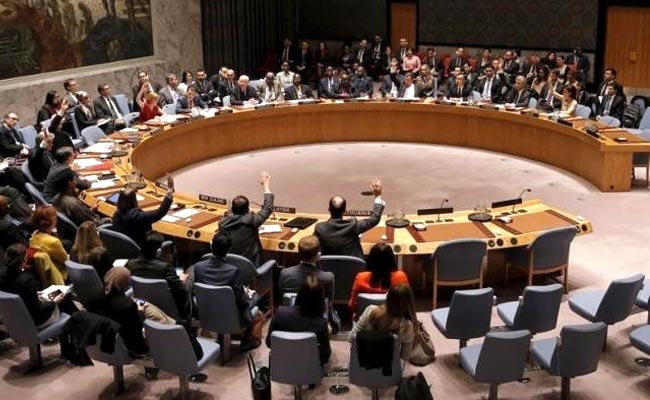
After more than 20 years of stalling, the Security Council reform process gained momentum last year.
United Nations:
India will not be given a permanent seat this year on the United Nations Security Council: a decision has been deferred to next year with discussions between countries unable to reach a breakthrough.
"It is unfortunate that the 70th anniversary of the United Nations was not able to build up momentum with a view to reaching an agreement on this important item of the agenda of the General Assembly," India said in a joint statement with Brazil, Japan and Germany.
The four countries jointly work for expanding the Security Council's permanent membership and mutually support each other for permanent seats and are known as G4.
The United Nations has 193 member countries who form the General Assembly. A meeting of their representatives has just ended without a decision on reconfiguring the Security Council, which has 15 members who decide how to maintain international peace and security. Britain, France, the United States, China and Russia are permanent members and hold veto power.
Last month, India failed to gain entry to the Nuclear Suppliers Group, a block of 48 countries that control the trade in nuclear technology and material.
India wants a permanent place on the Security Council to reflect its importance as a trillion dollar economy and a major South Asian power.
After more than 20 years of stalling, moves to reform the council to reflect a more global balance of power gained momentum last year when a negotiating text was adopted by the General Assembly, overcoming strong opposition from a small group of countries including Pakistan and Italy.
The adoption of the text was a breakthrough as meaningful negotiations could not be held without such a document.
Most UN members support increasing the total number of council members from 15 to the mid-20s and for making its working more transparent and involving non-member countries in its activities.
"It is unfortunate that the 70th anniversary of the United Nations was not able to build up momentum with a view to reaching an agreement on this important item of the agenda of the General Assembly," India said in a joint statement with Brazil, Japan and Germany.
The four countries jointly work for expanding the Security Council's permanent membership and mutually support each other for permanent seats and are known as G4.
The United Nations has 193 member countries who form the General Assembly. A meeting of their representatives has just ended without a decision on reconfiguring the Security Council, which has 15 members who decide how to maintain international peace and security. Britain, France, the United States, China and Russia are permanent members and hold veto power.
Last month, India failed to gain entry to the Nuclear Suppliers Group, a block of 48 countries that control the trade in nuclear technology and material.
India wants a permanent place on the Security Council to reflect its importance as a trillion dollar economy and a major South Asian power.
After more than 20 years of stalling, moves to reform the council to reflect a more global balance of power gained momentum last year when a negotiating text was adopted by the General Assembly, overcoming strong opposition from a small group of countries including Pakistan and Italy.
The adoption of the text was a breakthrough as meaningful negotiations could not be held without such a document.
Most UN members support increasing the total number of council members from 15 to the mid-20s and for making its working more transparent and involving non-member countries in its activities.
Track Latest News Live on NDTV.com and get news updates from India and around the world

